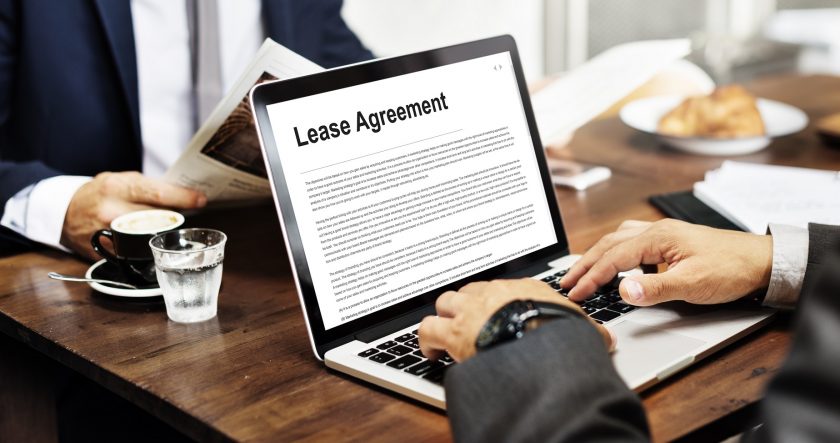In the hospitality space across major Australian cities, we are increasingly seeing hospitality venues shutting their doors sighting significantly high expenses as the reason, in particular, energy costs, wages and rent. In this article, I want to unpack the impact of rent costs for hospitality venues, and talk about a few areas that we at Brisan Hospitality Consulting, encourage our clients to be aware of, and help them monitor before they become an issue
In Adelaide for example, there seems to be a trend where the concentrated retail and food outlet strips have cycles, where there is an increased supply and/or demand for leasing premises on that popular road or street locality. Understandably, a landlord will profit on the demand for rental space and will inherently increase rents accordingly.
However, what happens when the trade market in that location falls and perhaps the property value also falls? We rarely see a landlord instigating a rent review or decreasing the rent. However, we do occasionally see a landlord who is prepared to assist a tenant when “times are tough” by either negotiating some sort of payment plan for outstanding rent, or who is willing to discuss the possibility of a rent review, should the contractual lease permit. This is the mark of a good landlord. And of course, a good tenant is one who does not ignore the issue of non-payment, and is upfront with the landlord around discussing the issues they are facing.
At Brisan, we occasionally have clients who are having problems making rent payments on time, and we always suggest to just talk frankly with the landlord or property manager in the first instance, or we, as their advisor, make the call to eliminate the emotional aspect for the tenant. Most landlords are willing to listen, and rightly so, as this is generally the first step in dealing with issues relating to a rental agreement.
However, what happens when a landlord won’t consider an alternate rental payment plan? What can the tenant do? If the signed lease is governed by the Retail and Commercial Leases Act 1995 (SA) or similar in other States, the tenant may be able to seek advice from the Office of the Small Business Commissioner in their State or Territory. While the Small Business Commissioner does not provide legal advice they can however assist small business operators by providing dispute resolution services pertaining to commercial dealings as well as provide informative assistance.
For many hospitality venues, and not to mention any business operating from a leased premise, the initial stages of signing a new lease can be a daunting experience and if you are not familiar with the terms and conditions of the lease, you may have already started on the wrong footing. It is always strongly suggested to seek advice from a legal representative and use that representative in the negotiation stages.
For some hospitality venues, we have seen in a few circumstances where a landlord offers a rent-free period at the start of a lease. For those tenants who are lucky enough to find premises with this enticement, we always recommend reading the fine print and budgeting for the future. Once this type of lease has been signed, we always recommend an integration of a rental budget, regardless of the duration of the rent-free period, as this supports the ability of the tenant to anticipate and weather the cost of rent, once it falls due. There are no favours for any party when the rent-free period expires and the tenant cannot afford the actual rent payments.
Another factor we support our clients to review and understand, is the maintenance of the building and renovation costs. If you are about to sign a rental agreement, ensure that it is clear as to who is responsible to maintain the building structure, as well as ensure good working condition of equipment, for example, whose responsibility is the air conditioning duct work? Something that many hospitality venues need to consider during our hot Australia summers, where functional air-conditioning plays a major factor in the comfort of customers walking in the door, and then returning.
Renovation costs are often a grey area to consider. While most tenants are prepared to cover the renovation costs to “freshen up” the look of their venue or perhaps provide a completely new experience for customers, watch out for landlords who may try to profit on this and increase rent based on increased property value due to the renovations. On the other hand, a landlord may be willing to assist in paying a portion of the renovation costs to ensure their tenant is happy and secure in those premises, and the tenant will make the rent payments in a timely manner based on the increased income for the tenant’s business brought about by the renovations.
If you are a tenant and are concerned with the high cost of rent, firstly compare it with industry standards. Generally, as a guide we work on the percentage of turnover for rent being 11.5% – 12% for restaurants and 9% for pubs and bars. If your venue is showing figures around these results and you are still having difficulty keeping up with the payments, then talk to your landlord or property manager. Also be aware that there may also be other factors affecting your bottom line. Consider whether your business is seasonal? Have you looked at other expenses incurred? What is your cost of goods? etc.
If you are a landlord, be willing to discuss a plan to assist your tenant in those difficult financial times. Be willing to negotiate. After all no one, especially not landlords, like to see “For Lease” signs on vacant premises. The relationship between a tenant and a landlord needs to be transparent and strong with both parties having a clear understanding on the situation at any given time.
If you are concerned about rent costs or any other factors affecting profitability, then give us a call on 08 8235 1594 and we will be more than happy to assist.




